By Hanna Schultz, People First Economy
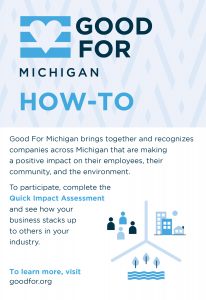 It’s 2019, and with the new year comes inspiration, a renewed sense of purpose, and the added drive to become the best version of yourself you can be.
It’s 2019, and with the new year comes inspiration, a renewed sense of purpose, and the added drive to become the best version of yourself you can be.
So, why would your approach to your business be any differently? This last year has seen economic growth and opportunity for many businesses, and it has also uncovered a desire for many businesses to embrace their values in a different, more meaningful way.
In West Michigan, many businesses align their practices with the values that the owners and employees hold dear in everyday life. This is among the reasons that locally owned businesses are statistically more philanthropic, environmentally responsible, and intentional toward community engagement. Many of these values have been more or less “unspoken” for many years, even generations, as the businesses themselves have grown or gone through seasons of change.
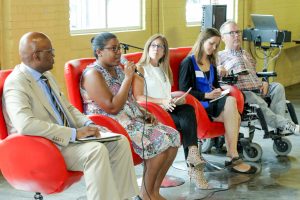 The Good For Michigan program wants to help businesses institutionalize and benchmark their impact, while providing real-time data that tracks all of the positive effects that the business has on the environment, their employees, and the community as a whole.
The Good For Michigan program wants to help businesses institutionalize and benchmark their impact, while providing real-time data that tracks all of the positive effects that the business has on the environment, their employees, and the community as a whole.
Good For Michigan offers resources for businesses that want to learn and do more for their communities. These opportunities include educational workshops. Details for upcoming events can be found at goodfor.org/events.
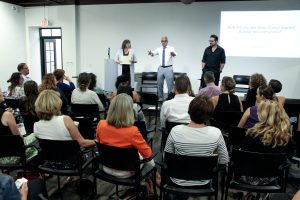 The crux of the program is the Quick Impact Assessment, which is a tool that any business can use to get a snapshot that measures and quantifies the positive impact it is making in its local community. The assessment (or the QIA, as it’s fondly called) is free for any business to take, and the information gathered is confidential.
The crux of the program is the Quick Impact Assessment, which is a tool that any business can use to get a snapshot that measures and quantifies the positive impact it is making in its local community. The assessment (or the QIA, as it’s fondly called) is free for any business to take, and the information gathered is confidential.
The QIA is a 60-minute assessment that measures dozens of best practices for employee, community and environmental impact. Business owners can also see how they compare to other businesses nationally.
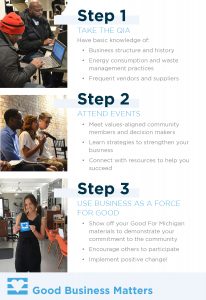 This assessment is ideal for business owners who are interested in learning about how they can use their business to make a positive social and environmental impact in their community. Businesses of all sizes and industries are invited to participate.
This assessment is ideal for business owners who are interested in learning about how they can use their business to make a positive social and environmental impact in their community. Businesses of all sizes and industries are invited to participate.
A diverse range of West Michigan businesses are already participating in Good For Michigan, from engineering firms to a breweries to restaurants, housing development companies, design firms and more.
Visit www.goodfor.org for more information or to take the Quick Impact Assessment for your business.
You can help keep the business community in West Michigan a leader in responsible business practices!
Hanna Schulze is development manager at People First Economy, the organization that runs the Good For Michigan program. Hanna has worked in economic development for over five years and finds the most value in her work when she can help small business owners grow their business intentionally using sustainable principles.
![]() This Week’s Sustainability Framework Theme
This Week’s Sustainability Framework Theme
Economic Development: Businesses and the local consumers are driving engines that generate capital for growth and development. We want to be a location of choice for new business and industry.
 ABOUT THIS SERIES
ABOUT THIS SERIES
Living Sustainably is a collection of community voices sharing updates about local sustainability initiatives. It is presented by the Holland-Hope College Sustainability Institute, a joint project of Hope College, the City of Holland and Holland Board of Public Works. Go to www.hope.edu/sustainability-institute for more information.




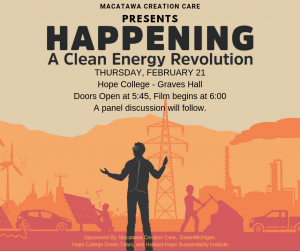
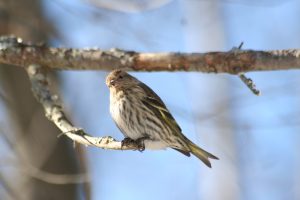
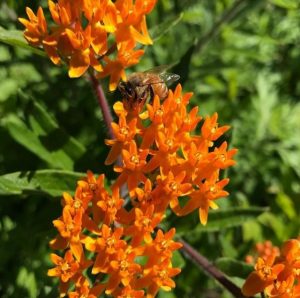
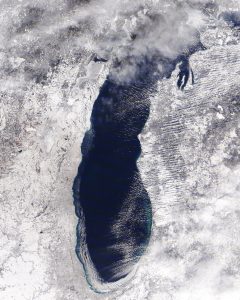

 The United Nations General Assembly has proclaimed Monday, February 11 as the
The United Nations General Assembly has proclaimed Monday, February 11 as the  The great specter of the modern age is shapeless, manifesting in a menagerie of forms: Fathers unable to keep a roof over the heads of their sons. Mothers having only empty pantries to offer their daughters. Neighbors squabbling over property that rises just above worthless.
The great specter of the modern age is shapeless, manifesting in a menagerie of forms: Fathers unable to keep a roof over the heads of their sons. Mothers having only empty pantries to offer their daughters. Neighbors squabbling over property that rises just above worthless.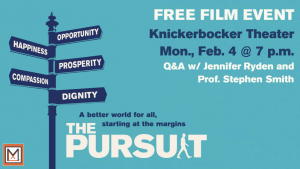
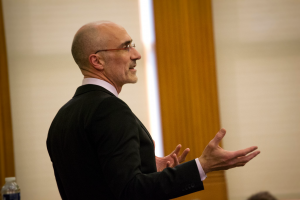
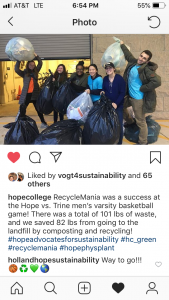
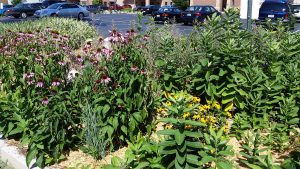
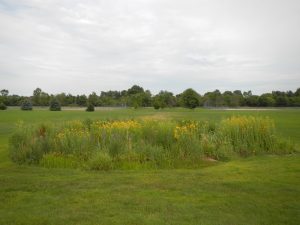
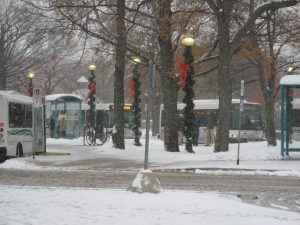
 “During this time of year, there are more dark hours. Being this dark can make it more difficult to see passengers at a bus stop,” said Dan Bench, a MAX bus operator. “We recommend either wearing reflective clothing or using anything to help flag the driver down and let them know you’re there. The light from a cell phone, a flash light – just something to help yourself be seen.”
“During this time of year, there are more dark hours. Being this dark can make it more difficult to see passengers at a bus stop,” said Dan Bench, a MAX bus operator. “We recommend either wearing reflective clothing or using anything to help flag the driver down and let them know you’re there. The light from a cell phone, a flash light – just something to help yourself be seen.”